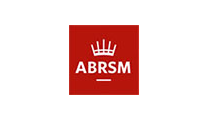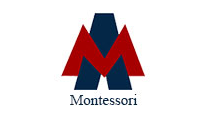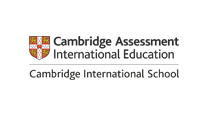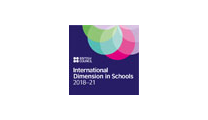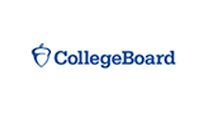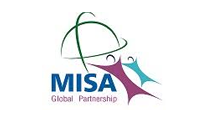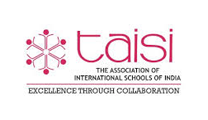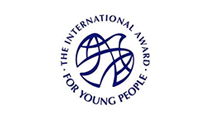- What is the Academic calendar that the school follows?
- The Academic Year is from July to May.
The school year consists of two semesters:
Semester I: July to December
Semester 2: January to May - Q: What is the enrolment age for admission in The Ardee School, Goa?
- Pre-Primary:
2+ RED
3+ BLUE
4+ Yellow
5+ EYFS
Primary:
6+ Year One - Is Ardee a K-12 School?
- Yes, The Ardee School, Goa is Montessori and Cambridge K-12 school.
- What is the curriculum followed at The Ardee School in Goa?
- The Ardee school is one of the best schools in Goa which offers a pure Montessori curriculum at the Pre-primary level and the International Cambridge Curriculum and the National Curriculum of England and Wales from Year 1-12.
- Is the Ardee School Cambridge Certified?
- Yes, The Ardee School is Cambridge certified. To add more value, one of our pre-primary heads has been chosen by the Cambridge University Press as a regional Cambridge trainer in India.
- How old is The Ardee School, Goa?
- The school in Goa was established in 2009. We have an accomplished students’ alumni network across the world in countries like the USA, UK, etc.
- What is the campus size of The Ardee School, Goa?
- The school is built on 2 acres of sprawling campus with state-of-the-art infrastructure and world-class facilities for the overall development of children.
- What enrichment facilities does The Ardee School, Goa offer?
- Sports (Basketball, Football, Athletics, Table tennis, Cricket, Yoga, Badminton, Volleyball, Chess) Music, College Bridge Program , World Study Curricula, Makers Arts
- Is the Ardee School, Goa co-educational?
- The Ardee School is one of the leading co-educational institutes of India. At Ardee we offer an inspiring, enriching, and inclusive academic environment to students. From its foundation in 2003, we are proud to offer Montessori schools and K-12 schools in New Delhi, Gurugram, Noida and Goa.
- Is Ardee School accepting admission applications for session 2023-2024?
- Yes, the school is accepting applications for the next academic sessions.
- What is the teacher-student ratio in The Ardee School, Goa?
- Pre-Primary - 12 students with one mentor and one lady attendant per room
Primary - 25 students per class with one mentor
Secondary - 25 students per class with one mentor - What facilities does The Ardee School, Goa provide?
- The school provides the following facilities beyond the curriculum:
In-house meals
Transport across north Goa
SEN
Support Community Service
MUNs
College Bridge Program
Makers Lab - What is the fee structure for The Ardee School, Goa?
- The Ardee School is one of the best Cambridge K-12 Schools in Goa with an affordable fee structure. The fee structure is available at the school and can be discussed during the school visit. However, the Ardee School’s fee structure is similar or less than other Cambridge Schools in Goa.
- Does the Ardee School, Goa provide transportation facilities?
- Yes, it does provide transport on specific routes. https://goa.theardeeschool.com/Transport
- Are there any aptitude tests for admission in The Ardee School, Goa?
- Yes, for Year 1 onwards, for specific subjects.
- What is the medium of instruction in The Ardee School, Goa?
- The primary mode of instruction is English.
- What safety measures are taken by The Ardee School, Goa?
- RFID Cards ✓
Closed Circuit Television (CCTV) ✓
Panic Buttons ✓
A Control panel is set up with a screen ✓
Police Verification ✓
In-House Vigilance Team ✓
Safety Officer and Crisis Management Team ✓
Nurse ✓
Walkie- Talkie communication✓
Fire Safety and intruder and earthquake safety drills ✓
24 Hour Security ✓
All construction or repair work on school premises done on weekends or only after school hours ✓
No entry: The school has a No Entry policy for any external service personnel during school hours ✓
https://goa.theardeeschool.com/Safety_Security - How does The Ardee school, Goa prepare students for higher education and career opportunities?
- The Ardee School has a unique college bridge program where our students visit a university every year for 5 days to experience different courses like law, architecture, skill development. In addition, our university guidance counsellor supports and guides our students. The students at the Ardee Schools are guided to make their university and career choices at large through psychometrics and aptitude tests. The psychometric reports become the tool to open discussions with the student, their mentors, and their parents for a better understanding. The students are also exposed to various kind of global and experiential learning opportunities which help them in self- exploration and at the same time help in building their profiles for varsity admissions. Many Seminars, ed-talks, Workshops, Community service, and training sessions are arranged for the students at Ardee equipping them with authentic educational and labour market information while igniting their intellectual curiosity. These students in their senior years at the school are ready to experience the learnings through internship guidance and placement programs, giving them the edge for their academic profiles and choosing their universities.
- Are there any scholarships or financial aid available for students in The Ardee school, Goa?
- The school does offer scholarship to deserving children with accolades in sports or cocurricular and academic excellence. This can be discussed post campus visit and assessment of the child. Post proper evaluation and verification the school will make the final decision.
- How do I enrol my child in The Ardee school, in Goa?
- The enrolment depends on availability of seats.
Our admission application process is online (Please click here)
Admission Process
Pre-primary Students-There are no tests for students, however we have an interaction with the parents to understand expectations and communicate our vision and practices.
Key stage 1 & 2 - appear for tests in English and Mathematics. We also meet the parents to have a mutual understanding of the student’s academic journey. The student’s past academic reports need to be shared with the school.
Key stages 3,4, 5- Appear for tests in English and Mathematics followed by an interview with the student and family. Subject choices will be offered a place based on the aptitude tests and past achievement in the subjects being chosen. This will be further strengthened through psychometric tests undertaken by the student and analysed by the University Guidance Counsellor.
Transfer Certificate and photocopies of the report card of the last two years need to be attached with the application form, along with a copy of the birth certificate.
Filing and submitting of application form does not guarantee admission to the school.
Parents are most welcome to visit our School and have an informal discussion with or without the child. This can be done by fixing a prior appointment with our admissions team. A meeting can also be arranged with the Head of School by prior appointment. - What is the difference between Cambridge curriculum and other curriculums?
- Cambridge International Curriculum (CIC) is a popular curriculum that is widely recognized and respected globally. It is a rigorous and challenging program that aims to develop a deep understanding of the subject matter and promotes critical thinking, creativity, and problem-solving skills. CIC has a strong focus on preparing students for university studies and is designed to provide a broad and balanced education.
- What are the benefits of studying in a Cambridge school?
- The Cambridge Curriculum is recognized globally, which means that students who study this curriculum have opportunities to continue their education in universities and colleges in India and around the world. Additionally, the Cambridge Curriculum prepares students for the challenges of higher education and equips them with the skills they need to succeed in their chosen careers.
The Ardee School follows Cambridge curriculum and is Cambridge certified. They also have regular professional development workshops for its mentors to keep them updated with teaching practices. - Benefits of Montessori classroom.
- The Montessori environment is a multi-age environment, and we can support a broader spectrum of learning levels. Montessori lessons are carefully presented by the facilitators and thoughtfully supported with didactic materials. Students absorb the subject matter on several areas and are encouraged to apply their learning across multiple disciplines. Students go beyond rote memorization and repetition to true understanding and application of knowledge, skills, and concepts.
The Montessori curriculum is divided into five key curriculum areas of learning, including Practical Life Exercises, Sensorial Education, Mathematics, Language and Cultural Subjects. The curriculum emphasizes that learning is a developmental process that cannot be determined by a child's age.
At the Ardee School, the subjects are interrelated through over-arching cultural themes. Reading, writing, botany, zoology, geography, science, history, and other subjects are bound together. Modern cognitive research affirms that connecting knowledge in this way is the most effective method for humans to learn and retain information. This integrated approach is one of the Montessori curriculum's greatest strengths. Studies come alive through a host of hands-on activities and didactic apparatus.
The learning process is instead seen as a process that is determined by the rate and speed that a student can acquire one skill or knowledge area before they progress to the next. - How is Cambridge curriculum different than CBSE curriculum?
- The choice between the Cambridge curriculum and CBSE (Central Board of Secondary Education) depends on individual preferences and goals. However, here are some potential benefits of the Cambridge curriculum over CBSE:
Emphasis on critical thinking: The Cambridge curriculum encourages students to develop critical thinking skills by focusing on inquiry-based learning, problem-solving, and creativity. This approach is designed to help students think beyond the memorization of facts and engage with complex concepts, which can benefit them in their future academic and professional endeavours.
International recognition: The Cambridge curriculum is recognized globally and is widely used in over 160 countries. This can be particularly beneficial for students who plan to pursue higher education or careers abroad, as it prepares them for the international academic and professional landscape.
Flexibility and choice: The Cambridge curriculum offer a range of subjects and allows students to choose subjects based on their interests and career aspirations. This flexibility can enable students to tailor their education to their individual needs and goals.
Integrated assessment: The Cambridge curriculum integrates continuous assessment throughout the year, which provides students with regular feedback on their progress and helps them identify areas where they need to improve. This approach can help students develop a deeper understanding of the material and better prepare for exams.
Focus on communication skills: The Cambridge curriculum emphasizes communication skills, including reading, writing, speaking, and listening. These skills are essential for success in many fields and can help students develop the ability to express themselves effectively and confidently. - When are the examinations held for IGCSE and A levels?
-
Examinations are held in May and November for the IGCSE and March for the A level students. This allows our students to sit for various competitive exams within India and have their results well in time for the admission process for colleges in the country.Our Faculty
Our faculty – Principal, Heads of Departments and teachers are drawn from the best institutions across the country. Regular teacher training and workshops are conducted. All staff comes with suitable teaching qualifications and an experience in international schools of repute. Many of them have held senior positions in their previous assignments. Professional development is continuous and relevant to each staff member’s needs.
The nine year old Montessori Teacher Training Centre, at The Ardee School – New Delhi, and Gurugram; plus the new elementary Montessori Teacher Training programme imparts exhaustive training in the Montessori Methodology, thus ensuring professionally qualified faculty for the pre primary students.
- How is Cambridge different from other boards and what are the key advantages?
-
It is the methodology and delivery of concept that makes all the difference between the CIE and many other boards. The CIE curriculum is more practical and application based emphasizing ‘knowledge with understanding’ and ‘skills with application’. It helps in the all- round development of the children cultivating transferable skills for lifelong learning.
As opposed to assessing memorized knowledge and speed of recall, CIE assesses students’ knowledge, understanding, reasoning, problem solving abilities and the higher cognitive skills of analysis and synthesis. In CIE there is greater scope of independent and collaborative learning through projects, activities, presentations and interactive team-based and enquiry-based learning. Teaching and learning techniques are structured to arouse students’ curiosity and promote personal development.
Examinations are set and marked by the CIE authorities in Cambridge, U.K., thus ensuring that the students are benchmarked as per international, worldwide benchmarked quality standards. CIE accreditation is a guaranteed passport for students who wish to pursue a college education in India or abroad.
Key advantages
- Assessment is done with an 8 point grading scale (A* being the highest attainable grade)
- ICE-International Certificate of Education can be awarded along with the Advanced Level Certification.
- Examinations are offered in March, May and November and are modular.
- A well balanced curriculum that is internationally oriented.
- A level and AS level are recognized by Universities all over the world.
- Are CIE examinations recognized in India?
-
All Indian board/Universities accept the IGCSE and the A Level to the 10th and 12th Standard of the CBSE. All universities in India accept the CIE certification at A levels as equivalent to the Year 12 of the CBSE programme. Click here
International RecognitionCambridge IGCSE is taken in over 100 countries worldwide and widely recognised by higher education institutions and employers around the world as evidence of academic ability. Cambridge IGCSE is equivalent to the GCSE in the United Kingdom. In some parts of the world, schools use Cambridge IGCSE as an international alternative to the local government's examination.
Each learner's performance is benchmarked using eight internationally recognised grades (A*-G). In some countries, the IGCSE qualifications satisfy the entry requirements for university. In others, they are widely used as a preparation for A Level, AS, International Baccalaureate and US Advanced Placement courses. - Does the school address the theory of Multiple Intelligence?
-
The school curriculum and philosophy is based on the theory of MI. We understand that every child is unique and special with his/her learning styles, interests, strengths and that the school has to cater to and nurture this to ensure the actualization of each child's potential.
We treat each child as an individual and respect him/her for his/her individuality. The teaching strategies ensure that different learning styles are addressed for optimum achievement and through academically validated differentiation practices; each child is fully engaged with the work. There is an IEP (Individual Education Plan) for each child who has any Special Educational Needs. - What is the language policy at Ardee?
- The school would like to encourage bilingual proficiency for all students. Besides offering basic languages i.e. English and Hindi from grade I upwards, French and Spanish are offered as a subject choice in the curriculum from Year 3 upwards.
- What is the school assessment pattern?
-
The primary purpose of assessment is to support and enhance student learning. We recognize and appreciate that students have different learning styles and both the formative and summative assessments are based on this premise. This makes the evaluation fair, while it demonstrates a wide range of best practices. All assessments are based on a mutual understanding between the student and teacher on what will be assessed and how. The formative assessments (AFL- Assessment For Learning) are ongoing and provide students with a clear feedback to help them set their targets for the future. The summative assessments (AOL- Assessment of Learning) are calendared and follow pre decided units as per the needs of a particular subject. All assessments are more skill based and involve critical thinking and discourage rote learning. Students are also involved in cross curricular symposiums and projects which form part of the final assessment grade. This serves to make them independent learners.
Key Stage 1 and 2
Formative Assessments are ongoing and aimed at providing information to guide teachers and enhance student performance. These are not graded.
Summative assessments are based on short units to provide information on student achievement against specific benchmarks.
A range of assessment practices are used to cater to the strengths and learning styles of different students and includes projects, oral presentations and presentations using technology. All assessments are not the traditional pen and paper ones.
Key Stage 3
In addition to the above, students of Key Stage 3 have two calendared assessments at the end of each semester. The final grade is based on the summative assessments done through the semester as well as the end of semester assessments. This system is observed to prepare the students for timed assignments of a longer duration and covering a larger chunk of the syllabus to stand them in good stead for the IGCSE at the end of Year 10.
Key Stage 4 and 5
Key Stage 4 includes Year 9 and 10 and culminates in the IGCSE examinations conducted by Cambridge at the end of Year 10.
Students take a psychometry test to enable them to make an informed choice regarding the subjects they would like to pursue. They are supported in this process by the College Counsellor, the Cambridge Coordinator and the Principal/ Deputy Principal. A meeting is held with each student along with the parents to finalise the subject choices.
Students take a minimum of 8 subjects for their IGCSE programme. Differentiation is provided based on the needs of the students.
Key Stage 5 includes Year 11 and 12. Students take up the AS and A level exams at this level.
A student is required to take a minimum of 4 subjects at this level. This process is again guided by the psychometry test and the guidance of the Counsellor, the Cambridge Coordinator as well as the Deputy Principal / Principal along with the parents.
The assessment format at Key Stage 4 and 5 is more rigorous. It includes the ongoing formative assessments, summative assessments and end of semester calendared assessments. In addition, students in Year 10 and 12 undergo two Mock Examinations to prepare them for their final IGCSE and AS/A level examinations.
Students are encouraged to work on cross curricular projects to strengthen their portfolios as this initiative makes them stand out as independent learners.
In addition to the above, students of Key Stage 4 and 5 take the CEM test (Centre for Evaluation and Monitoring) from Durham University. CEM is a leading provider of Assessment and Monitoring Systems which includes Baseline, Attitudinal, Diagnostic and Entrance testing for students.
The CEM testing enables the teachers to gauge student aptitude and interest in different areas and ensure that each student achieves his/her optimum. This data is shared with students and parents.
In Key Stage 4 and 5 students are also encouraged to take standardized testing like SAT, ACT, TOEFFL, IELTS etc. They are guided by the College Counsellor during the regular time tabled Counselling lesson. - How does the school support students who have social/emotional problems?
- Every teacher is responsible for each child and his/her well being in the school. The school ethos promotes respect, trust and acceptance of differences. The class mentor is the point of main contact for all discussion and monitoring of student progress and works with colleagues to support each child in his/her learning in the school. In addition, the school provides a constant online interaction between parent, teacher and the student, under the guidance of a designated Counsellor when required.
All students get designated time with the Counsellor. In addition, the school offers a robust PSHE (Personal, Social Health Education) curriculum to address the needs of the students in an age appropriate manner. - How accessible is the faculty and the board?
- The faculty is always accessible to parents of the school students through an online forum and by appointment.
- What should I do if my child is absent?
-
The School Attendance Policy clearly states that all students are required to have a minimum attendance of 90%. Absence from school without a very valid reason is discouraged as we believe that it impacts student learning adversely. Parents are informed at the end of every month if their son/daughter has not got the mandatory 90% attendance. Students who do not have the 90% attendance are not allowed to stand for the Student Council elections unless the reason for absence is very valid and merits a concession.
If your child is absent for more than two days, please inform the school by phone or online about the reason of absence. You must also remain in contact with the class teacher, online, for follow up of the work your child has missed. A doctor's certificate/medical fitness certificate must be sent when the child rejoins the school after an extended illness. - What should I do if I want a detailed discussion about my child with her/his teachers?
- All communication about the child will constantly be updated on the student profile. If you need to discuss your child's progress, you may make an appointment with the class teacher at a time suitable to both of you.
